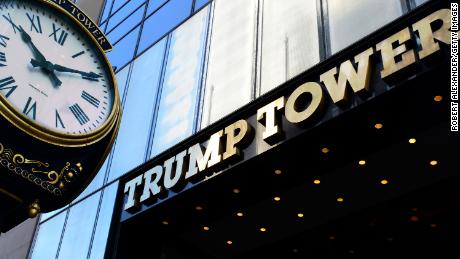The letter, dated April 29, had been previously filed publicly with many redactions. The new filing, with fewer redactions, sheds a little more light on the government’s investigative steps.
It indicates that prosecutors obtained electronic devices belonging to multiple people who worked for Giuliani Partners but it does not say specifically how many.
Giuliani previously said on Fox News that the FBI took seven or eight electronic devices when they arrived at his apartment to execute the search warrant. His attorney, Robert Costello, previously said they also took the laptop belonging to Giuliani’s assistant when they searched his office.
Government specialists have downloaded 11 of Giuliani’s devices, according to the filing. The remainder, however, are passcode-protected, and the government has asked for Giuliani’s assistance in unlocking them.
The bulk of the now revealed material relates to a covert search of Giuliani’s iCloud account in 2019. Giuliani’s lawyers are arguing that search was illegal and prosecutors should not be able to review the materials they seized last month.
Prosecutors said they used a filter team of attorneys and FBI agents who are not on the investigative team to review the material obtained in 2019 for any items that could be covered by attorney-client or other privileges. They noted that that review is “substantially” complete.
They argued that a filter team was appropriate at the time because the warrants were executed covertly, but they are now seeking a special master, an independent person, to review the newly obtained materials in part due to the publicity of the April search.
That process was used after authorities seized material from another former lawyer for former President Donald Trump, Michael Cohen, and prosecutors said in their filing that in that case the special master “resulted in an efficient and effective privilege review.”
Giuliani’s lawyers have asked the court to delay the appointment of a special master and want the judge first to unseal the affidavits supporting an earlier search warrant that gave prosecutors access to his iCloud account.
Prosecutors, however, told the court that the affidavits shouldn’t be revealed because “[a]lthough there has been public reporting about the existence of this investigation, much of the information set forth in the affidavits is not publicly known.”
In objecting to the search, Giuliani’s lawyer had said the prior search overlaps in time with the latest search but for 56 days added at the end.
The Justice Department acknowledges the overlap in the newly unredacted portion of the letter.
“Based on the Government’s investigation to date, given the overlap in date range and because certain materials, including certain emails and text messages, were backed up to the iCloud accounts that were searched pursuant to these prior warrants, the Government expects that some, but not all, of the materials present on the electronic devices seized pursuant to the Warrants could be duplicative of the materials seized and reviewed pursuant to the prior warrants,” it said.
DOJ is soon expected to file a reply to the Giuliani objections.
As part of the same investigation, agents last month also executed a search warrant at the home of Victoria Toensing, a lawyer and Giuliani ally.
Prosecutors said in the letter Giuliani and Toensing’s status as lawyers shouldn’t make them “above the law or immune to criminal investigation,” and said search warrants executed on them late last month “were the result of an ongoing, multi-year grand jury investigation into conduct involving Giuliani, Toensing, and others.”
“Giuliani and Toensing are lawyers, to be sure,” the prosecutors wrote. “But this Court has found probable cause that their devices and accounts contain evidence of specified federal crimes.”
Prosecutors also argued against Giuliani’s assertion that the affidavits should be unsealed to allow him to evaluate whether the government leaked phone records or text messages to the House.
“There is no evidence to support this outlandish accusation, and in any event, a subject’s desire to ‘investigate’ his own unsupported conjectures is simply not a proper basis to unseal affidavits, and Giuliani cites no case in support of that bootstrapping proposition,” they wrote.
This story has been updated with additional information Thursday.





